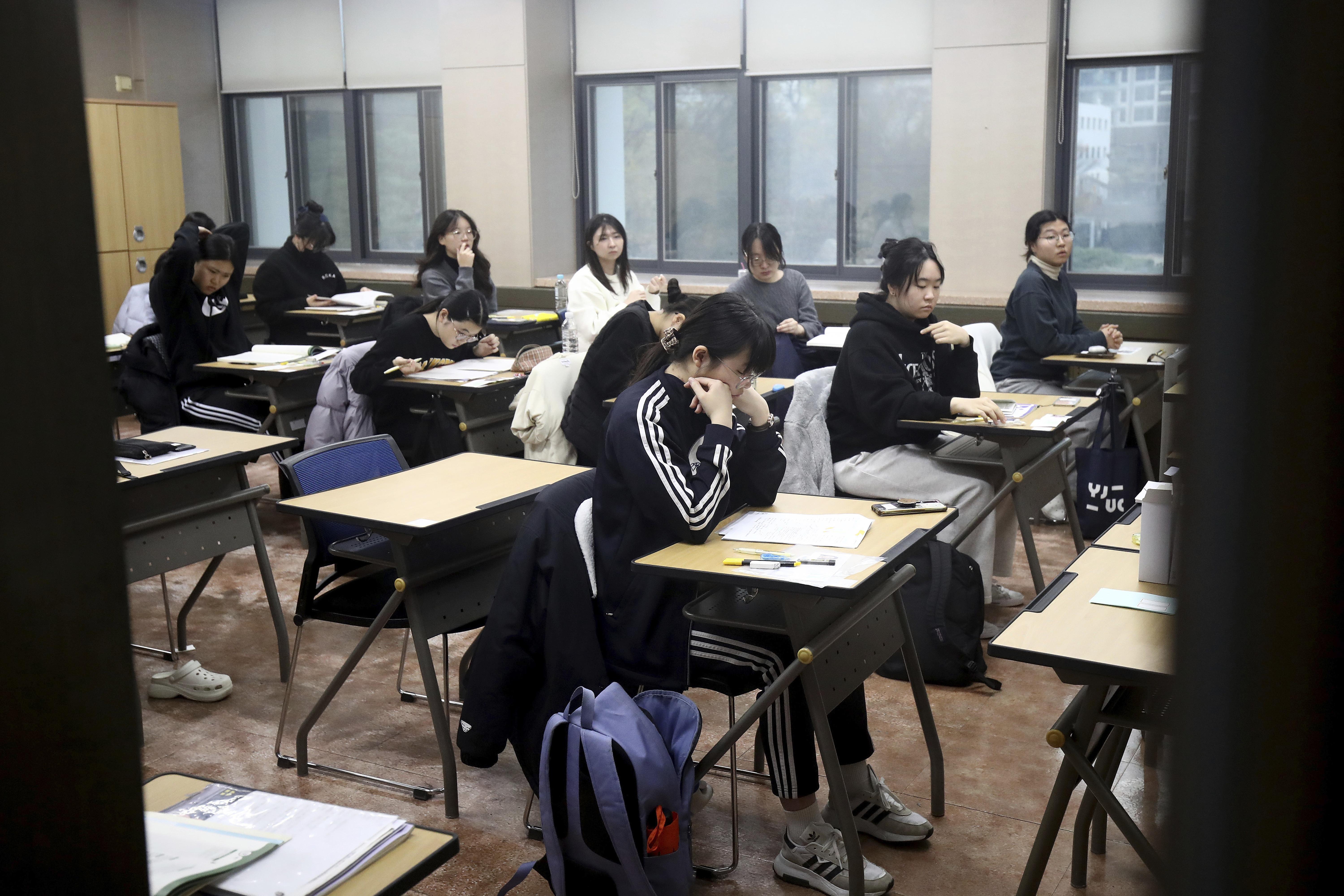 Students wait to take the annual College Scholastic Ability Test at a school on Nov 16, 2023, in Seoul, South Korea. (PHOTO / POOL VIA AP)
Students wait to take the annual College Scholastic Ability Test at a school on Nov 16, 2023, in Seoul, South Korea. (PHOTO / POOL VIA AP)
SEOUL - Half a million South Koreans sat for the annual nationwide college entrance exam on Thursday, the first time in four years that the exam, often considered life-defining in the highly competitive society, has taken place free of pandemic rules.
This year, nearly 505,000 high school students, graduates and others signed up to take the single-day, five-session College Scholastic Ability Test (CSAT) held at 1,279 test sites across the country, the education ministry said.
Test-takers were not required to wear face masks, unlike the previous three years.
ALSO READ: South Korea ramps up pest control after reports of bedbugs
The annual exam is widely considered one of the most important tests in the country. Even airline flights are suspended during the listening comprehension portion of the English test.
 Junior students cheer for their senior student's success in the college entrance exams in front of an exam hall in Seoul, South Korea, Nov 16, 2023. (PHOTO / AP)
Junior students cheer for their senior student's success in the college entrance exams in front of an exam hall in Seoul, South Korea, Nov 16, 2023. (PHOTO / AP)
South Koreans spent a record 26 trillion won ($19.97 billion) on private education last year, despite a declining student population, a government report showed
South Korean financial markets opened an hour later than usual at 10 am (0100 GMT) to ease traffic.
Outside schools, parents cheered for their children, hugging them and some wiping away tears.
"I feel so nervous. Maybe I'm more nervous (than my daughter)," said Kim Mi-jae, mother of an 18-year-old student, after sending off her daughter for the exam at a high school in Seoul.
READ MORE: S. Korea to curb soaring private education spending
The difficulty of this year's exam has yet to be confirmed, but South Korean officials have said it would not include the so-called "killer questions" typically drawn from material not covered in public school curriculum.
President Yoon Suk-yeol has blamed such questions as the cause of excessive spending on private education, one of the factors behind the country's declining fertility rate.
South Koreans spent a record 26 trillion won ($19.97 billion) on private education last year, despite a declining student population, a government report showed.



